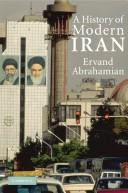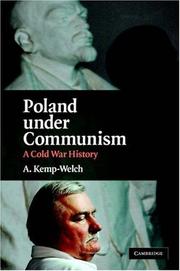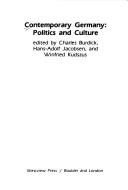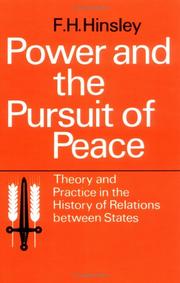| Listing 1 - 10 of 26 | << page >> |
Sort by
|
Book
ISBN: 9781032282015 Year: 2024 Publisher: New York, NY : Routledge,
Abstract | Keywords | Export | Availability | Bookmark
 Loading...
Loading...Choose an application
- Reference Manager
- EndNote
- RefWorks (Direct export to RefWorks)
"This book, the first of its kind, brings together leading scholars from multiple perspectives in a serious dialogue about continuity and change in global media production and content. Looking at a wide swath of the world, these authors show the emergence of transnational collaboration in global television and film production across national borders that seems to transcend national cultures and identities. At the same time, traditional class analysis of such phenomena is reframed within the rise of myriad social movements for equality, democracy, human rights, and defense of the environment. What are the effects of media, local or global? Does the West continue to dominate or is cultural imperialism waning? With original chapters written by leading scholars from a variety of disciplines, this book will appeal to students and scholars interested in global media communication, cultural studies, and international political economy"--
MASS MEDIA AND GLOBALIZATION --- POLITICAL SCIENCE --- LANGUAGE ARTS & DISCIPLINES

ISBN: 9780521528917 9780521821391 9780511984402 9780511415357 0511415354 0521528917 0521821398 0511984405 9780511412134 0511412134 1107174503 1107385792 1281751332 9786611751333 0511414676 0511413076 0511413998 9781107385795 9780511413070 Year: 2008 Publisher: Cambridge Cambridge University Press
Abstract | Keywords | Export | Availability | Bookmark
 Loading...
Loading...Choose an application
- Reference Manager
- EndNote
- RefWorks (Direct export to RefWorks)
In a reappraisal of Iran's modern history, Ervand Abrahamian traces its traumatic journey across the twentieth century, through the discovery of oil, imperial interventions, the rule of the Pahlavis and, in 1979, revolution and the birth of the Islamic Republic. In the intervening years, the country has experienced a bitter war with Iraq, the transformation of society under the clergy and, more recently, the expansion of the state and the struggle for power between the old elites, the intelligentsia and the commercial middle class. The author is a compassionate expositor. While he adroitly negotiates the twists and turns of the country's regional and international politics, at the heart of his book are the people of Iran. It is to them and their resilience that this book is dedicated, as Iran emerges at the beginning of the twenty-first century as one of the most powerful states in the Middle East.
History of Asiaanno 1800-1999Iran --- History of Asia --- anno 1800-1999 --- Iran --- History --- Arts and Humanities

ISBN: 9780754671671 9781315547725 9781317000471 9781317000488 Year: 2008 Publisher: Aldershot Ashgate
Abstract | Keywords | Export | Availability | Bookmark
 Loading...
Loading...Choose an application
- Reference Manager
- EndNote
- RefWorks (Direct export to RefWorks)
855.2 Private actoren --- Defense contracts --- Defense industries --- Security, International --- Technology --- War --- Applied science --- Arts, Useful --- Science, Applied --- Useful arts --- Collective security --- International security --- Armaments industries --- Arms sales --- Military sales --- Military supplies industry --- Munitions --- Sale of military equipment --- Military contracts --- War contracts --- Economic aspects --- Technological innovations --- Military aspects --- Science --- Industrial arts --- Material culture --- International relations --- Disarmament --- International organization --- Peace --- Industries --- Arms transfers --- Public contracts --- Private military companies --- Research and development contracts, Government
Book
ISBN: 9780521683425 9780521864916 9781139029421 9781139525626 113952562X 1139029428 9781139528016 1139528017 0521864917 9781139530293 1139539639 9781139539630 1139530291 9781139530293 1283637464 9781283637466 1139526820 9781139526821 0521683424 Year: 2012 Publisher: New York Cambridge University Press
Abstract | Keywords | Export | Availability | Bookmark
 Loading...
Loading...Choose an application
- Reference Manager
- EndNote
- RefWorks (Direct export to RefWorks)
"There are two ways to write about the history of anti-Americanism. Until now, many scholars -- the "anti-anti-Americans" -- have taken the term at face value and assembled catalogues of published statements exhibiting animosity towards the United States. These histories often convey the impression of continuity, consistency, and consensus, so that they in effect present a single, transnational tradition of anti- Americanism. From Enlightenment philosophers deriding the New World's climate, to Latin American nationalists blaming U.S. imperialism for all their countries' ills, we are invited to contemplate an apparently unbroken chain of irrational hostility, an enduring ideological mindset with a long pedigree. Anti-Americanism, in the conventional approach, is understood as an obsessive and particular hatred of the United States, expressed in exaggerated language, and traceable to a fundamental hostility toward democracy, freedom, and modernity"--
ANTI-AMERICANISM --- USA--FOREIGN RELATIONS --- Anti-Americanism --- Antiamericanism --- History --- United States --- Foreign public opinion. --- Relations. --- Relations --- Foreign opinion --- Anti-amerikanisme --- Foreign public opinion --- History. --- Arts and Humanities

ISBN: 9780521884402 9780521711173 9780511619779 0511619774 9780511388378 0511388373 0511387385 9780511387388 9780511384530 051138453X 9780511382710 0511382715 1281255076 9781281255075 0521711177 0521884403 1107186226 0511386362 9786611255077 0511380550 Year: 2008 Publisher: Cambridge New York Cambridge University Press
Abstract | Keywords | Export | Availability | Bookmark
 Loading...
Loading...Choose an application
- Reference Manager
- EndNote
- RefWorks (Direct export to RefWorks)
This book was the first English-language history of Poland from the Second World War until the fall of Communism. Using a wide range of Polish archives and unpublished sources in Moscow and Washington, Tony Kemp-Welch integrates the Cold War history of diplomacy and inter-state relations with the study of domestic opposition and social movements. His key themes encompass political, social and economic history; the Communist movement and its relations with the Soviet Union; and the broader East-West context with particular attention to US policies. The book concludes with a first-hand account of how Solidarity formed the world's first post-Communist government in 1989 as the Polish people demonstrated what can be achieved by civic courage against apparently insuperable geo-strategic obstacles. This compelling new account will be essential reading for anyone interested in Polish history, the Communist movement and the course of the Cold War.
Communism --- History. --- CommunismHistory. --- Bolshevism --- Communist movements --- Leninism --- Maoism --- Marxism --- Trotskyism --- Collectivism --- Totalitarianism --- Post-communism --- Socialism --- Village communities --- Poland --- History --- Politics and government --- Arts and Humanities

ISBN: 0865314438 Year: 1984 Publisher: Boulder, CO : Westview,
Abstract | Keywords | Export | Availability | Bookmark
 Loading...
Loading...Choose an application
- Reference Manager
- EndNote
- RefWorks (Direct export to RefWorks)

ISBN: 0521094488 0521052742 0511622457 0511863624 Year: 1967 Publisher: Cambridge : Cambridge University Press,
Abstract | Keywords | Export | Availability | Bookmark
 Loading...
Loading...Choose an application
- Reference Manager
- EndNote
- RefWorks (Direct export to RefWorks)
In the last years of the nineteenth century peace proposals were first stimulated by fear of the danger of war rather than in consequence of its outbreak. In this study of the nature and history of international relations Mr Hinsley presents his conclusions about the causes of war and the development of men's efforts to avoid it. In the first part he examines international theories from the end of the middle ages to the establishment of the League of Nations in their historical setting. This enables him to show how far modern peace proposals are merely copies or elaborations of earlier schemes. He believes there has been a marked reluctance to test these theories not only against the formidable criticisms of men like Rousseau, Kant and Bentham, but also against what we have learned about the nature of international relations and the history of the practice of states. This leads him to the second part of his study - an analysis of the origins of the modern states' system and of its evolution between the eighteenth century and the First World War.
Arts and Humanities --- History --- International relations --- Peace. --- History. --- Coexistence, Peaceful --- Peaceful coexistence --- Disarmament --- Peace-building --- Security, International --- Diplomatic history --- International history (Diplomatic history) --- World history
Book
ISBN: 9789284687978 9284687977 Year: 2022 Publisher: Place of publication unknown European Union
Abstract | Keywords | Export | Availability | Bookmark
 Loading...
Loading...Choose an application
- Reference Manager
- EndNote
- RefWorks (Direct export to RefWorks)
The illustrated poster was born in Europe in the late 19th century, reflecting an increasingly commercialised world with conflicting political ideologies. Posters are ephemeral, produced for a specific moment, yet many elements are recycled and resonate in cultural memory today. From the propaganda of the World Wars and the Cold War to the explosion of cultural exchange, tourism and the emergence of multi-voiced social movements after the Second World War, complex layers of European division and unity are revealed through a selection of posters from the collection of the House of European History. They reflect the development and transformation of the public sphere in European cities. Exhibition: House of European History, Brussels, Belgium
Graphic arts --- posters --- graphic design --- propaganda --- Europe --- EUROPEAN INTEGRATION--HISTORY --- PROPAGANDA, SOVIET--EUROPE --- PROPAGANDA, ANTI-COMMUNIST--EUROPE --- COLD WAR--SOCIAL ASPECTS--EUROPE --- COMMUNICATION AND CULTURE

ISBN: 0198581629 0198581696 9780198581697 9780198581628 Year: 1979 Volume: 1 Publisher: Oxford Clarendon
Abstract | Keywords | Export | Availability | Bookmark
 Loading...
Loading...Choose an application
- Reference Manager
- EndNote
- RefWorks (Direct export to RefWorks)
Social change --- Pure sciences. Natural sciences (general) --- Science --- Technology --- Sciences --- Technologie --- Congresses --- Social aspects --- Congrès --- Aspect social --- 159.922.2 --- Natural science --- Science of science --- Ecologische psychologie --- -Technology --- -316.42 --- Applied science --- Arts, Useful --- Science, Applied --- Useful arts --- Industrial arts --- Material culture --- Social change. Sociale ontwikkeling. Sociale veranderingen. Modernisering. Evolutie .Sociale revolutie. Modernisme --- SciencesSocial aspects --- 159.922.2 Ecologische psychologie --- 316.42 Social change. Sociale ontwikkeling. Sociale veranderingen. Modernisering. Evolutie .Sociale revolutie. Modernisme --- Congrès --- 316.42 --- Science and society --- Sociology of science --- 822.6 Militaire Bondgenootschappen --- 838 Duurzame Ontwikkeling --- Natural sciences --- Congresses.
Multi
ISBN: 9781107643338 9781107026087 9781139199254 1107026083 1107643333 1139508407 1107232171 1139518089 9786613685612 1139515500 113951458X 1139517155 1139519018 1139199250 128077522X 9781139519014 9781139515504 Year: 2012 Publisher: Cambridge Cambridge University Press
Abstract | Keywords | Export | Availability | Bookmark
 Loading...
Loading...Choose an application
- Reference Manager
- EndNote
- RefWorks (Direct export to RefWorks)
Hybrid warfare has been an integral part of the historical landscape since the ancient world, but only recently have analysts - incorrectly - categorised these conflicts as unique. Great powers throughout history have confronted opponents who used a combination of regular and irregular forces to negate the advantage of the great powers' superior conventional military strength. As this study shows, hybrid wars are labour-intensive and long-term affairs; they are difficult struggles that defy the domestic logic of opinion polls and election cycles. Hybrid wars are also the most likely conflicts of the twenty-first century, as competitors use hybrid forces to wear down America's military capabilities in extended campaigns of exhaustion. Nine historical examples of hybrid warfare, from ancient Rome to the modern world, provide readers with context by clarifying the various aspects of conflicts and examining how great powers have dealt with them in the past.
Polemology --- Asymmetric warfare --- Asymmetric warfare. --- Hybrid warfare. --- Irregular warfare --- Military history, Modern. --- History. --- Arts and Humanities --- History --- Hybridkrig --- Militærhistorie --- Asymmetrisk krigsførelse --- Modern military history --- IW (Irregular warfare) --- Unconventional warfare --- War --- Guerrilla warfare --- Military art and science
| Listing 1 - 10 of 26 | << page >> |
Sort by
|

 Search
Search Feedback
Feedback About UniCat
About UniCat  Help
Help News
News